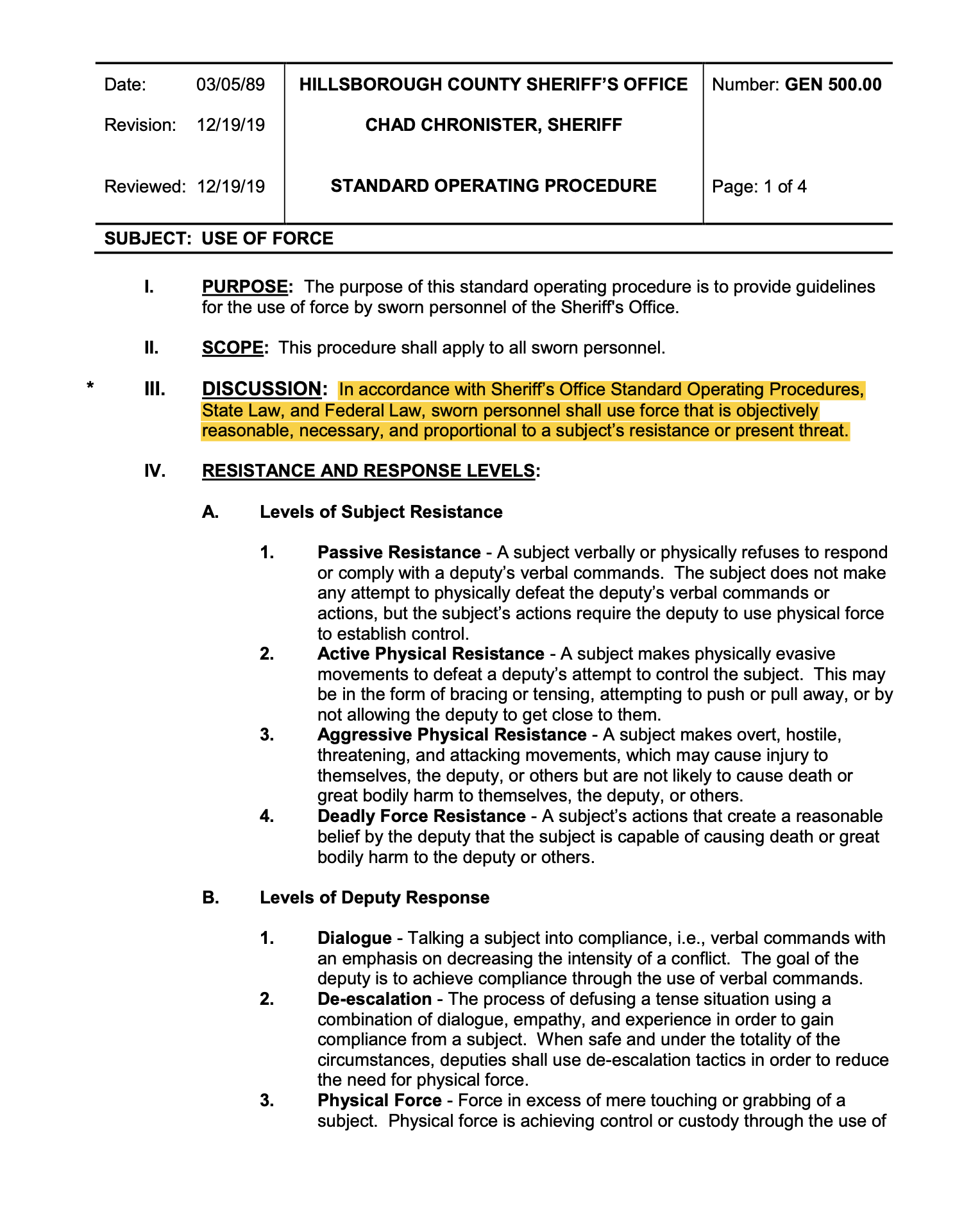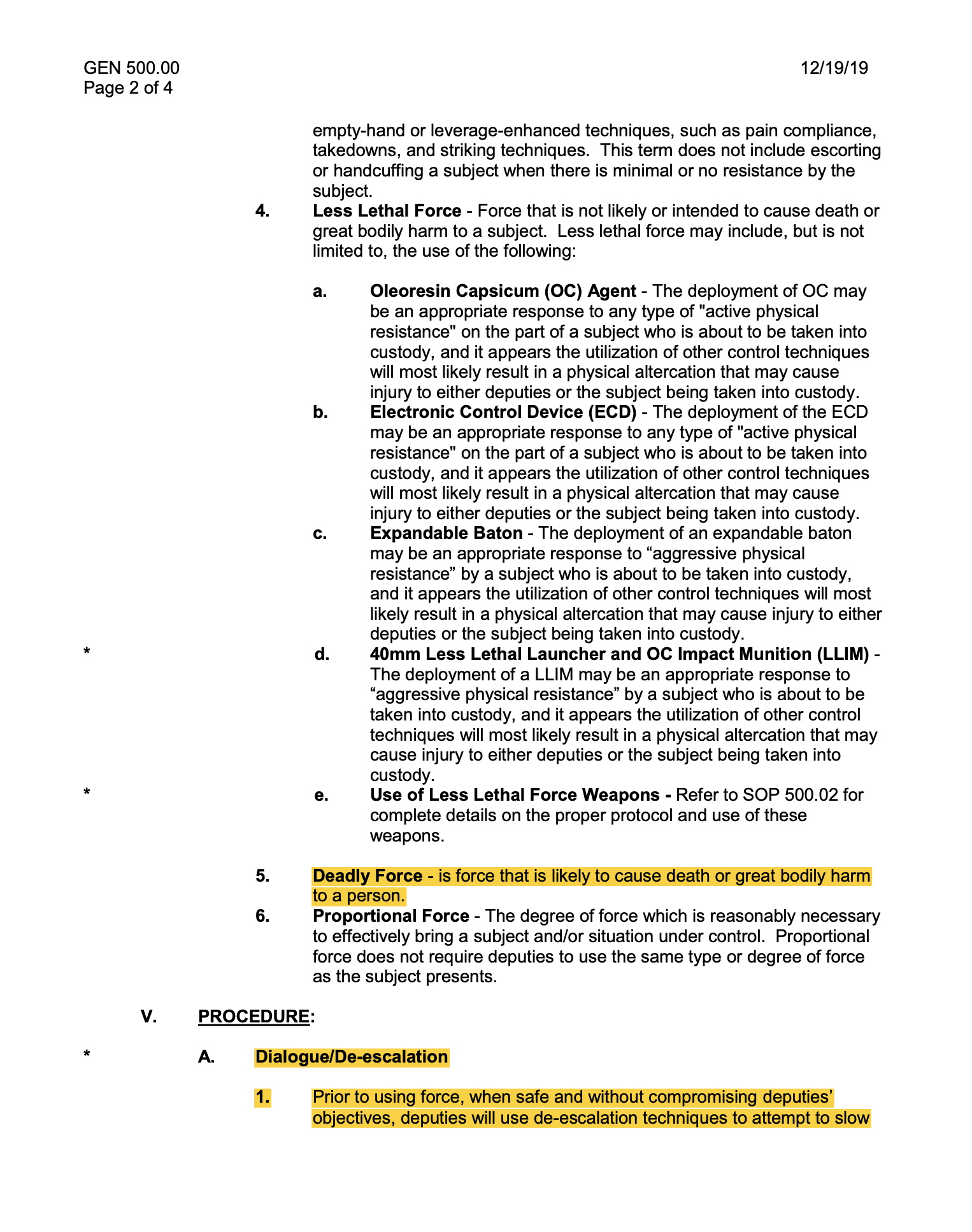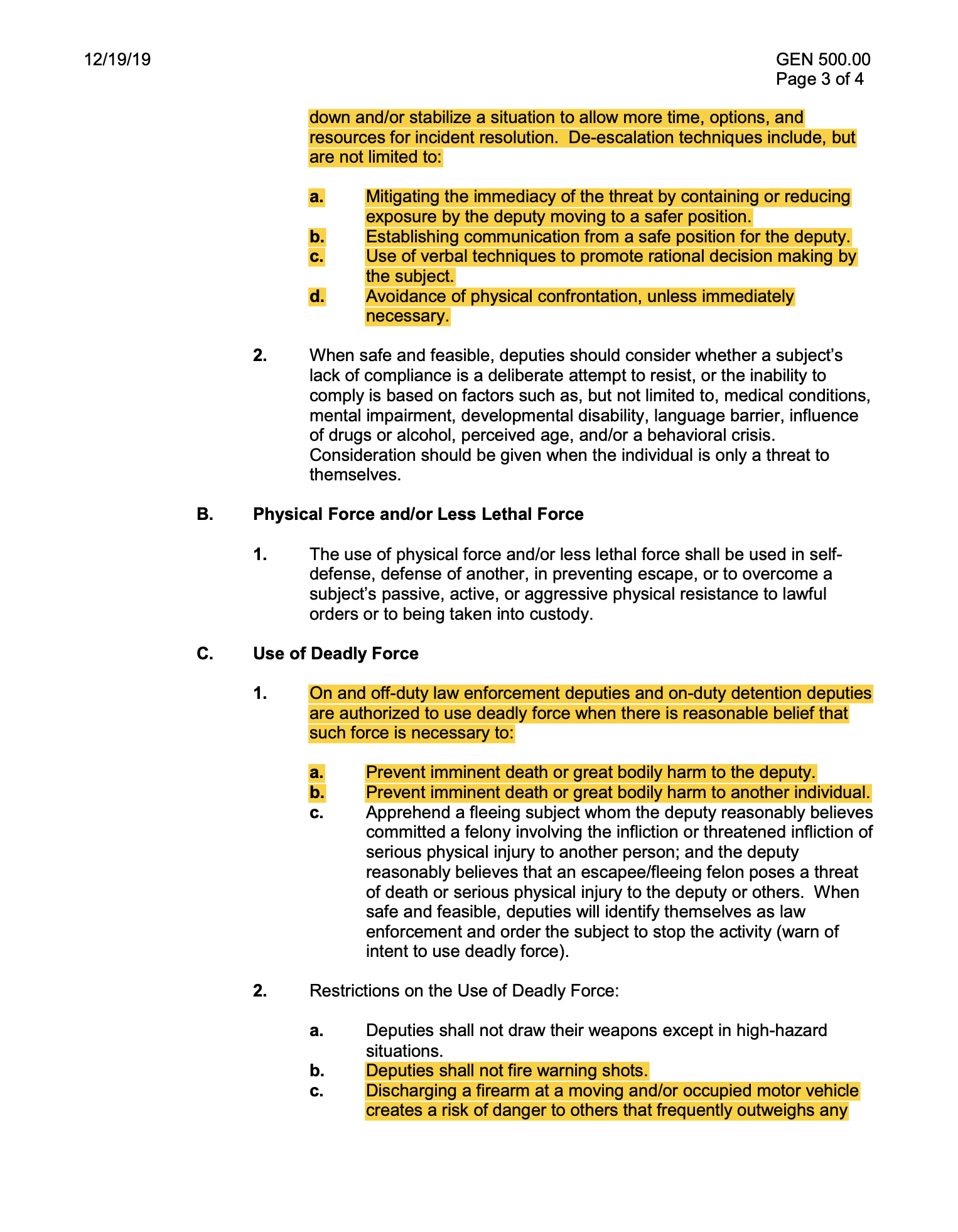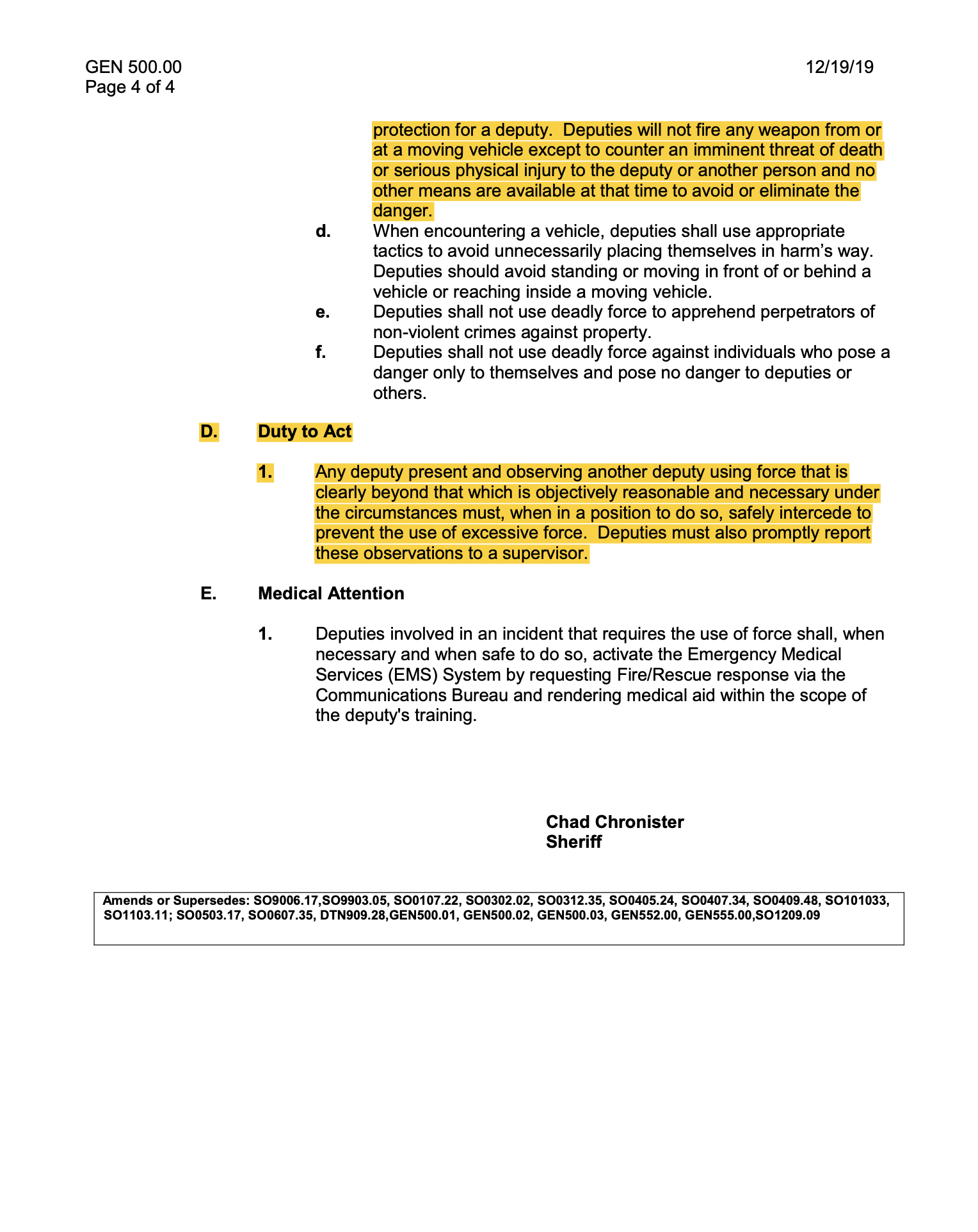
The Hillsborough County Sheriff’s Office knows and embraces the conversation about “8 Can’t Wait,” which examines the use of force policies for law enforcement agencies across the country. We are eager to address these issues openly and honestly with our community and share the extensive training our deputies go through to protect the public. We welcome these conversations. We see and feel the anger as we try to protect peaceful protests. We will move our community forward safely. We know communication and listening are critically important to the progress we make together.
“I hope the “8 Can’t Wait” conversation will help us turn the page from destroying buildings and stealing from businesses to a meaningful discussion on how we make progress together. We as law enforcement officers owe it to our community to share our policies and procedures. We have always done so and will continue. We have developed extensive use of force restrictions and de-escalation techniques for our team. We want the public to know what our deputies are trained to do and how this keeps our community safe. My promise is simply this -- we will continue to listen to the concerns of our citizens and strive to become an even stronger agency by working together," said Sheriff Chad Chronister.
We recognize this important discussion does not lend itself to a headline, social media post, or soundbite. It requires extensive discussion, listening, and accountability. With respect to the specific policy goals itemized in the “8 Can’t Wait” conversation we want to share the following information:
Item 1. BAN CHOKEHOLDS & STRANGLEHOLDS
We do not teach nor do we condone using chokeholds or strangleholds. Years of experience demonstrate that these types of movements can cause death or great bodily harm, and as a result, law enforcement training categorizes them as deadly force. A Deputy may only use deadly force when the deputy has a reasonable belief that deadly force is necessary to prevent imminent death or great bodily harm to another person, including another deputy. We have included our Use of Force Standard Operating Procedure with this statement which has been developed to meet our mission of keeping our community safe.
Item 2. REQUIRE DE-ESCALATION
De-escalation techniques are an important part of our deputy training and have been for nearly 20 years. Our Deputies learn the best practices to de-escalate potentially violent encounters with citizens. Often Deputies only have split seconds to make decisions in violent encounters, and, of course, Deputies can never compromise our mission of safety. When it is possible, our Deputies are required to use de-escalation techniques to attempt to slow down or stabilize a situation to allow more time, options, and resources in order to find a resolution.
Item 3. REQUIRE WARNING BEFORE SHOOTING
Because deputies often have seconds or less to make life-altering decisions, a warning before using deadly force may not always be possible. Deputies routinely try to talk with a person, resolve the situation without violence, and let a person know they may face the use of force if they do not comply with directions. We are committed as a department and will not tolerate any deputy who merely shoots first without any justification.
Item 4. EXHAUST ALL ALTERNATIVES BEFORE SHOOTING
Our deputies are required to follow our Use of Force policy. That policy requires that in any situation where a deputy or a citizen does not face imminent harm or death, de-escalation techniques should be exhausted in order to slow down or stabilize a situation. Use of deadly force is always a last resort and limited to those situations were imminent harm or death must be stopped.
Item 5. DUTY TO INTERVENE
Our Deputies are taught they have a “DUTY TO ACT.” This may mean different things to different people outside of law enforcement, but in our agency, any deputy who sees another deputy use force beyond anything that is objectively reasonable and necessary under the circumstances must intervene to stop the use of excessive force. Not only are our deputies required to act, but they must also report the issue to a supervisor.
Item 6. BAN SHOOTING AT MOVING VEHICLES
Our policies and training programs require deputies to only use deadly force to prevent the imminent threat of death or serious injury to a person or another deputy. The use of a weapon in law enforcement is considered deadly force. We believe and train our entire team that the use of deadly force should be limited, rare and only a last resort. To be clear, our deputies are only permitted to fire a weapon at a moving vehicle in a situation where a person or another deputy is facing imminent death or harm. If a deputy in our office unjustifiably uses deadly force, that person would be disciplined and likely terminated.
Item 7. ESTABLISH USE OF FORCE CONTINUUM
We have a well-established use of force continuum. Our deputies are trained, and our standard operating procedures spell out clearly to our team that the use of any force must be proportionate to the circumstances. In any encounter, it is the goal of our team to neutralize the threat to the public. Compliant suspects who are cooperative, do not pose a threat and are not combative can be easily detained with little to no force. Suspects pointing deadly weapons at people or charging at deputies with a weapon must be met with more substantial force. In any given encounter, our deputies are required to protect public safety and use the appropriate amount of force to prevent any further harm.
Item 8. REQUIRE ALL FORCE BE REPORTED
Our team is required to report the use of force. Supervisors must complete these reports after a detailed and complete investigation. These investigations typically include interviews with the person on whom force was used and other witnesses. Deputies at the scene are interviewed. Any available evidence is also reviewed including medical records, video surveillance, radio transmissions, and all forensic evidence. If any misconduct is found, our team has an extensive disciplinary process. We review the use of force instances not only to ensure compliance with our policies but also to make sure we learn from every encounter.



